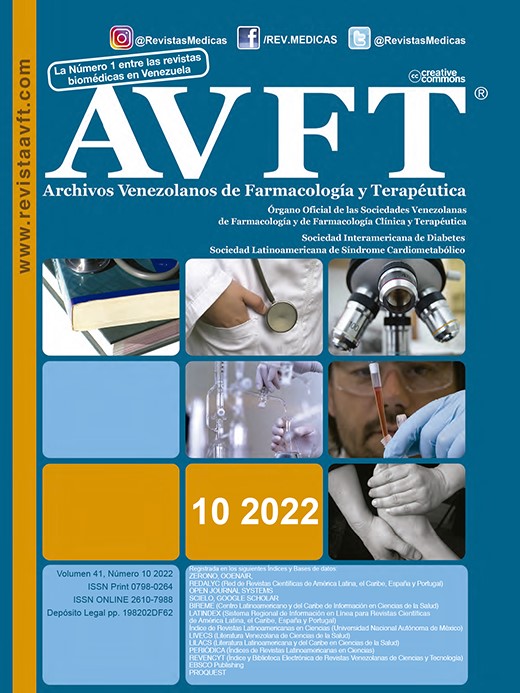Stress and job performance of secondary teachers under the telework modality
Keywords:
stress, teleworking, secondary teachers, covid -19Abstract
Changes are part of the future of the human being in its different contexts and these transformations are the product of the need to adapt them in the areas in which they are immersed. Undoubtedly, the pandemic caused by Covid-19 produced in human beings’ uncertainties about the consequences it could generate. The purpose of this research was to analyze the levels of stress and work performance in teachers under the modality of telework, during the preventive isolation declared by the World Health Organization in the last 2 years. The current study used a quantitative descriptive method. A questionnaire was used to assess the levels of stress and it has a considered level of validity and reliability. The sample consisted of 94 of 120 teachers linked to the secondary educational institution of the public sector. As a conclusion of this study, most teachers suffer from stress, which significantly affects their work performance
Downloads
References
Tapasco O, Giraldo J. Factores asociados a la disposición por el teletrabajo entre docentes universitarios. Cienc Trab 2016. https://www.scielo.cl/pdf/cyt/v18n56/art03.pdf
Wulida T, Artatanaya IG, Burgess J. Working from home effectiveness during Covid-19: Evidence from university staff in Indonesia. Asia Pacific Manag Rev. 2022; 27(1):50–57. https://www.sciencedirect.com/science/article/pii/S1029313221000452.
Federación Colombiana de Gestión Humana (ACRIP). Estudio Trabajo Remoto Prácticas laborales virtuales implementadas por las empresas en Colombia. 2020. https://www.acripnacional.org/wp-content/uploads/2020/07/ESTUDIO-TRABAJO-REMOTO-nuevo-ACRIP-NACIONAL.pdf
Sandoval-Reyes J, Idrovo-Carlier S, Duque-Oliva EJ. Remote work, work stress, and work–life during pandemic times: A Latin America situation. Int J Environ Res Public Health. 2021; 218(13) https://www.mdpi.com/1660-4601/18/13/7069
García, E. Reflexiones sobre la educación telemática en tiempos de coronavirus. AOSMA, 2020; 1(28). https://dialnet.unirioja.es/servlet/articulo?codigo=7381628
Vidal, V. El estrés laboral: Análisis y prevención. Zaragoza: Prensas de la Universidad de Zaragoza. 2019.
Organización Mundial de la Salud. (2004).
https://www.who.int/occupational_health/publications/pwh3sp.pdf
Malik, N. A., & Björkqvist, K. Workplace Bullying and Occupational Stress Among University Teachers: Mediating and Moderating Factors. Europe's journal of psychology, 2019;15(2), 240–259. https://doi.org/10.5964/ejop.v15i2.1611
Cannon, W. The Mechanical Factors of Digestion. Wisconsin, Medical College of Wisconsin. 1911. https://rieoei.org/historico/deloslectores/1341Ayuso.pdf
Moadel, A., Christie, A., & Powers, C. Manejo del estrés Efectos del estrés y cómo sobrellevarlos. 2019. https://www.coursehero.com/file/51466849/PS92S-SP-Managing-Stress2019pdf/
Zárate, S., Cárdenas, F., Sarmiento, M., & León, L. Efectos del estrés sobre los procesos de plasticidad y neurogénesis: una revisión. 2014. doi: 10.11144/Javeriana.UPSY13-3.eepp.
Cipric, A., Strizzi, J., Overup, C., Theis, L., Stulhofer, A., Sander, S., Gad-Kjeld, S., & Hald, G. Psychosocial Intervention Cooperation after Divorce: An RCT Study of the Effects of a Digital Intervention Platform on Self-Perceived Stress. 2020. https://doi.org/10.5093/pi2020a7
Félix, R., García, C., & Mercado, M. EL ESTRÉS EN EL ENTORNO LABORAL. Cultura Científica y Tecnológica. 2019. https://erevistas.uacj.mx/ojs/index.php/culcyt/article/view/2481/2300
Duran, M. Bienestar Psicológico: El estrés y la calidad de vida en el contexto laboral. Revista Nacional de Administración. 2010; 1(1),71-84. https://doi.org/10.22458/rna.v1i1.285
Uribe, P. Clima y ambiente organizacional. Trabajo, salud y factores psicosociales. México: Manual Moderno. 2015 https://www.dheducacion.com/wp-content/uploads/2019/02/Clima-y-ambiente-organizacional.pdf
Cirera O, Yeda, A, Díaz, E, Rueda E, Spears, V, Ferraz, Odair. Impacto de los estresores laborales en los profesionales y en las organizaciones. Análisis de investigaciones publicadas. 2012. https://www.redalyc.org/articulo.oa?id=87724146007.
Organización Internacional del Trabajo (OIT) (2011). Manual de Buenas prácticas en Teletrabajo. https://www.ilo.org/wcmsp5/groups/public/---americas/---ro-lima/---ilo-buenos_aires/documents/publication/wcms_bai_pub_143.pdf
Filardi, F., Castro, R. M. P. De, Tulio, M., & Zanini, F. Advantages and disadvantages of teleworking in Brazilian public administration: analysis of SERPRO and Federal Revenue experiences. 2020. https://doi.org/10.1590/1679-395174605x
Rubbini, N. Organizaciones que implementan teletrabajo: recomendaciones para facilitar las relaciones sociales satisfactorias en el trabajo 2018. file:///C:/Users/usuario/Downloads/Tesis%20Rubbini%20correccion%20estilo_EntregadaDoctorado.pdf-PDFA.pdf
González, N. Estrés en el ámbito laboral de las instituciones de salud Un acercamiento a narrativas cotidianas. (2012). 25(70):171-192. https://www.redalyc.org/articulo.oa?id=59524971009
Todd, C., Cooksey, R., Davies, H., McRobbie, C., & Brophy, S. Mixed-methods evaluation comparing the impact of two different mindfulness approaches on stress, anxiety and depression in schoolteachers. BMJ open, 2019; 9(7), e025686. https://doi.org/10.1136/bmjopen2018-025686
Wang, P., Chu, P., Wang, J., Pan, R., Sun, Y., Yan, M., Jiao, L., Zhan, X., & Zhang, D. Association Between Job Stress and Organizational Commitment in Three Types of Chinese University Teachers: Mediating Effects of Job Burnout and Job Satisfaction. Frontiers in psychology, 2020; 11, 576768. https://doi.org/10.3389/fpsyg.2020.576768
Alcalde, I. Docentes del siglo XXI: retos y habilidades clave. 2015.
https://es.linkedin.com/pulse/docentes-del-siglo-xxi-retos-y-habilidades-clave-ignasi-alcalde
Fuster-Guillén, D, Ocaña-Fernández Y. Estilos de afrontamiento al estrés influyentes en la solución de problemas sociales en estudiantes universitarios en aislamiento social por COVID 19. AVFT. 2021. 40(4).410-417. file:///C:/Users/usuario/Downloads/23039-Texto%20del%20art%C3%ADculo-144814499088-1-10-20210927.pdf
Barrera, L., Casas, M., & Lizarralde, A. Manual de prevención de riesgos psicosociales en teletrabajadores. 2019. https://repository.ucatolica.edu.co/bitstream/10983/23937/1/MANUAL%20DE%20PREVENCI%c3%93N%20DE%20RIESGOS%20PSICOSOCIALES%20.pdf
Estrada. E, Paricahua. J, gallegos. N, paredes. Y, Quispe. R. Valoración de los síntomas psicosomáticos relacionados al estrés en los docentes de educación básica regular durante la pandemia de COVID-19. AVFT Archivos Venezolanos de Farmacología y Terapéutica Volumen 41, número 5, 2022; ISSN 2610-7988, https://www.revistaavft.com/images/revistas/2022/avft_5_2022/3_valoracion_sintomas.pdf
Vega, S. Riesgo psicosocial el modelo demanda-control apoyo social. Factores psicosociales y de organización. 1998. https://www.insst.es/documents/94886/326775/ntp_603.pdf/f15ca511-259c-480b-9f12-28ef5349b3c1
Fajardo-Lazo. F, Mesa-Cano, Ramírez-Coronel1. A, Rodríguez. F. Professional Burnout syndrome in health professionals. AVFT. 2021. 40(3).248-255. file:///C:/Users/usuario/Downloads/22964-Texto%20del%20art%C3%ADculo-144814498928-1-10-20210907.pdf
Peñafiel-León. J, Ramírez-Coronel1. A Mesa-Cano. I, Martínez-Suárez. Impacto psicológico, resiliencia y afrontamiento del personal de salud durante la pandemia por COVID-19. AVFT. 2021. 40(3).202-211 file:///C:/Users/usuario/Downloads/22959-Texto%20del%20art%C3%ADculo-144814498920-1-10-20210906.pdf
Downloads
Published
How to Cite
Issue
Section
License
Copyright (c) 2023 AVFT – Archivos Venezolanos de Farmacología y Terapéutica

This work is licensed under a Creative Commons Attribution-NonCommercial-NoDerivatives 4.0 International License.




